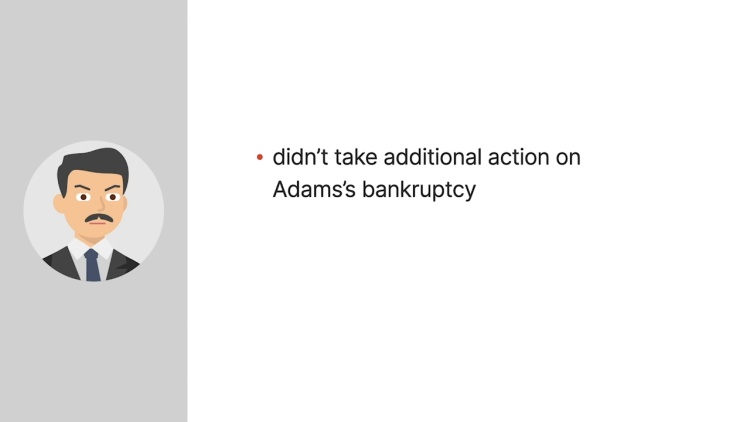Machado v. Statewide Grievance Committee
Connecticut Appellate Court
890 A.2d 622 (2006)

- Written by Carolyn Strutton, JD
Facts
Scott Adams hired attorney Arthur Machado (plaintiff) to represent him in a bankruptcy proceeding. Because Adams was in jail, he instructed Machado to communicate with Kendra Cihocki. Cihocki delivered a check to Machado as a retainer for Adams’s bankruptcy proceedings. Cihocki, however, then told Machado to obtain a release of a sales-tax lien placed on a business that she and Adams owned. Machado depleted the retainer in providing legal services related to the tax lien. Cihocki picked up the file for these services from Machado, and because the retainer money was depleted, Machado took no further action on Adams’s bankruptcy. He failed to inform Adams that he was no longer pursuing the bankruptcy proceedings. Machado thereafter closed his law office but did not inform Adams. Adams attempted to contact Machado by phone and mail to inquire about his bankruptcy proceedings and received no response. Adams filed a complaint with the Statewide Grievance Committee (the committee) (defendant), alleging that Machado had failed to communicate with him and that Machado owed Adams the retainer because Machado had failed to work on the bankruptcy as agreed during their initial meeting. The committee issued a reprimand against Machado. Machado appealed the reprimand, and the trial court dismissed his appeal. Machado then appealed the trial court’s dismissal.
Rule of Law
Issue
Holding and Reasoning (Gruendel, J.)
What to do next…
Here's why 905,000 law students have relied on our case briefs:
- Written by law professors and practitioners, not other law students. 47,100 briefs, keyed to 995 casebooks. Top-notch customer support.
- The right amount of information, includes the facts, issues, rule of law, holding and reasoning, and any concurrences and dissents.
- Access in your classes, works on your mobile and tablet. Massive library of related video lessons and high quality multiple-choice questions.
- Easy to use, uniform format for every case brief. Written in plain English, not in legalese. Our briefs summarize and simplify; they don’t just repeat the court’s language.





